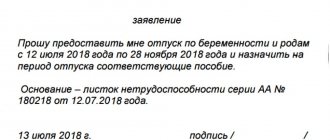It is difficult to imagine today an enterprise that from time to time, and sometimes regularly, due to the specifics of its activities, does not send its representatives to solve production problems, expand the scope of its activities, train, or simply to exchange experience to other regions of Russia or even countries of the world.
Business trips, formalized in writing by the head of the organization to achieve set goals and a period presumably sufficient for their implementation to an area remote from the main location of the enterprise where a person works under an employment contract, are defined by labor legislation as business trips.
Both the employer sending an employee on a trip and the employee himself have questions about the deadlines within which the employee can be sent.
The manager is interested in what the law has to say about this from the point of view of the legal framework.
For a person sent on a business trip, this fact is also important, since he has to live away from home and family.
The generation that entered working life back in the days of the Soviet Union, which still continues to work today, remembers well that on the basis of Instruction No. 62 adopted by several departments of the USSR on April 07, 1988, a maximum period of business trip within the Union republics was provided for - 40 days.
However, the time spent on the trip was not taken into account during this period.
Employees involved in commissioning, construction and installation work could be sent on business trips for a period of no more than one year (clause 4 of Instruction No. 62).
Based on the instructions of the regulatory agencies, it was recommended to adhere to these deadlines even in cases where employees were sent on business trips abroad.
Many employers continue to take these standards into account, which, in principle, does not contradict current legislation.
Thus, the maximum period of business travel under the Labor Code of the Russian Federation 2021 is not mentioned at all in Chapter 24.
In addition, starting from 2008, the rules adopted in Resolution No. 749, approved on October 13, 2008, with subsequent amendments to it, have been in force.
Paragraph 4 of the Regulations on the specifics of sending employees on business trips, adopted by Resolution No. 749, emphasizes that the duration of an employee’s business trip is determined by the head of the enterprise, taking into account the volume, complexity and other features of the official assignment, without specifying specific limits.
How long is a business trip?
According to Art. 166 of the Labor Code of the Russian Federation, a business trip is a trip to carry out orders from the management of an enterprise, therefore, as soon as the event determined for the purpose occurs, it must end.
Paragraph 4 of Regulation No. 749 provides an explanation that the day of departure and return from a business trip to the location of permanent work is included in the period of a business trip.
Moreover, if the vehicle in which the posted employee gets to his destination departs from his location within 24 hours inclusive, this day is considered the day of departure.
In the case when the departure time of transport, according to boarding tickets, is from 0.00 o’clock, the next day is considered the day of departure.
According to the amendments made to Regulation No. 749, adopted by Resolution No. 1595 and which came into force in January 2015, regardless of what the maximum and minimum travel dates are, issuing a written order is sufficient to formalize sending an employee on a business trip.
In addition to the specified purposes of the business trip, the order approximately indicates the duration of its validity, depending on how much time may be needed to implement them.
It is important to understand that the actual maximum and minimum travel dates can be changed due to a number of prevailing circumstances.
For example, when setting up the “Customer’s” equipment, a seconded employee performed work on a day off and completed the tasks ahead of the deadline specified in the order.
In the event of illness of an employee sent to carry out an official assignment, or an unforeseen delay in travel (for example, due to weather conditions, the departure of an airplane was delayed), the period of business trip will actually be extended, which should also be documented in an additionally issued order.
Question No. 3
How to pay an employee if he went on a business trip after the end of his working day, but during the same day?
Is it possible to pay for days actually worked? The duration of the business trip is determined by the employer, taking into account the volume, complexity and other features of the official assignment.
The actual duration of an employee’s stay on a business trip is determined by travel documents presented by the employee upon returning from a business trip, and in their absence, on the basis of documents for the rental of residential premises or other documents confirming the conclusion of an agreement for the provision of hotel services at the place of business trip. Or the employee submits a memo and (or) other document about the actual duration of the employee’s stay on a business trip, containing confirmation of the party receiving the employee (organization or official) about the date of arrival (departure) of the employee to the place of business trip (from the place of business trip).
In accordance with clause 9 of Regulation No. 749, the average salary is maintained for all days of work according to the schedule established in the sending organization:
— during the period the employee is on a business trip;
— for days on the road, including during forced stops along the way.
In this case, it is necessary to take into account the following (clause 4 of Regulation No. 749):
— the day of departure on a business trip is the date of departure of a train, plane, bus or other vehicle from the place of permanent work of the business traveler;
— the day of arrival from a business trip is considered the date of arrival of the above vehicle at the place of permanent work;
- when a vehicle is sent before 24.00 inclusive, the current day is considered the day of departure on a business trip, and from 00.00 and later - the next day.
According to the norms of the legislation of the Russian Federation, the average salary of an employee is paid for all working days provided for by the work schedule of the sending organization.
Therefore, in cases where the Labor Code of the Russian Federation provides for the retention of average earnings for an employee, average earnings should be calculated rather than paying current wages.
For example, the Letter of Rostrud dated 02/05/2007 No. 275-6-0 contains an explanation according to which, even if in some cases the “current” salary may be higher than the average earnings calculated in the prescribed manner for payment to an employee sent on a business trip, wages for days on a business trip will contradict the provisions of the Labor Code of the Russian Federation.
Thus, if an employee went on a business trip on the day specified in the order to start the business trip, and this day is marked as a business trip in the time sheet, the designated day is subject to payment in the amount of average earnings, determined in the prescribed manner.
The issue of an employee’s attendance at work on the day of departure on a business trip and on the day of arrival from a business trip is resolved by agreement with the employer in accordance with clause 4 of Regulation No. 749.
The maximum period for which a business trip can be arranged
Having carefully studied the regulatory framework that was fundamental in 2017 for registering a business trip, which is considered a business trip, we note the main requirements:
- the presence of a written order from the manager, defining: the purpose of separating the employee from the main workplace and sending him to another area;
- deadlines sufficient to complete the assigned task;
The manager determines the period for which the employee goes on a business trip.
The maximum duration of a business trip within the Russian Federation, as well as outside the Motherland, is currently not limited.
You need to understand that a business trip cannot continue indefinitely and must be completed with the fulfillment of the employer’s instructions, otherwise it may be regarded as a transfer of the employee to another organization (Article 72.1 of the Labor Code of the Russian Federation).
Answers to common questions about the maximum duration of a business trip
Question No. 1: The employer arranged a business trip for an employee, which should begin on January 13. But the employee took the initiative, exchanged a plane ticket and flew to his destination 3 days earlier. Should the manager pay for these 3 days?
Answer: If the initiative to change the timing of a business trip did not come from the employer, he is not obliged to pay wages and daily allowances on those days that were not included in the travel period.
Question No. 2: Should weekends and holidays be taken into account when determining the timing of a business trip?
Answer: Yes, weekends and holidays are also taken into account in the total duration of the business trip. If an employee is on holiday on a day off, he is entitled to a daily allowance; if he was working, he is entitled to double daily allowance and the average salary (or single amount, if the employee wishes to take time off upon returning from a trip).
How to make changes to the duration of a booked business trip
In life, it is impossible to predict how events will unfold.
It happens that having sent an employee on a business trip, the need to achieve its goal simply disappears, or the employee completed the assigned task ahead of schedule.
The manager needs to recall the employee from a business trip.
It is logical that for this purpose an appropriate order is created, adjusting the timing of the business trip with justification of the reasons for their change.
Moreover, neither in the Labor Code, nor in Regulation No. 749, the legislator does not focus attention on this point and does not provide certain requirements for the preparation of documentation, unified forms.
Therefore, the employer has the right to issue a written order in any form or developed for such situations in the organization.
You can inform the posted worker that the period of his stay on official assignment has been changed by all available means: in a telephone conversation, sending a scanned copy of the order by e-mail, and others.
Upon return, the employee must personally familiarize himself with the original order.
What to do if you need to extend your business trip?
If the fulfillment of a task received when sent on a trip requires the presence of a specialist for more than the established period, for example, for technical reasons, or the person fell ill and could not do work for several days, by analogy with a recall from a business trip ahead of schedule, an order to extend the business trip may be issued.
The employee will also be familiarized with his signature after his arrival at the main workplace.
The only nuance that is important not to forget is that if the posted employee belongs to the category of persons who have certain guarantees and benefits that require the employee’s consent to perform official duties outside his main workplace, associated with traveling to another location for a certain period of time, consent to extend the business trip must be get again.
By prior means, for example, by telephone, the person must agree to stay late to complete the assigned work.
Such employees include:
- employees with children under three years of age;
- parents of children under five years of age raising without the help of a second spouse;
- persons who have a dependent child recognized as disabled;
- workers caring for incapacitated relatives, according to a medical report on the need for outside care;
- working disabled people.
Advance issued for travel expenses when the timing of a business trip changes
According to Art. 168 of the Labor Code of the Russian Federation, the employer pays all material costs associated with the business trip.
Clause 10 of Regulation No. 749 provides for the issuance of an advance to pay for travel to the place of business trip and return home, for the rental of living quarters, and daily expenses associated with being away from a permanent place of residence.
It is clear that when returning from a trip ahead of schedule, there must be money left over for a longer period of stay and daily expenses, which, together with the submission of an advance report, must be deposited into the company's cash desk or returned to the current account.
At the request of the employee, the excess funds paid can be recovered from his salary.
If an employee completed a production task on time, but due to his personal affairs was delayed in the city (country) and returned later than the established deadline, he will not be compensated for these days in the amount of accommodation and daily expenses, and payment for travel on the return trip will also become unreasonable.
In the event that a business trip takes longer than planned, due to an unforeseen stop along the way or the additional time required to complete the task, the person must be compensated for additional expenses.
Moreover, in case of extension of the business trip, an advance payment for daily expenses and accommodation during the estimated period can be sent by postal order or transferred to the employee’s bank account.
Maximum duration of a business trip: the employee returned later
It happens that an employee, for certain reasons, returns to the company at his main place of work later than expected. Such changes entail additional payments; in addition, the HR department will be forced to document the end of the trip later than the previously approved date. The document should indicate the basis for extending the trip, this could be:
- impossibility of fulfilling the employer’s instructions within the time determined before the business trip;
- assigning an employee an additional amount of work;
- the presence of the employer’s interest in extending the business trip or the interest of the host company;
- delay/cancellation of an airplane flight or train departure;
- lack of travel tickets at the box office;
- an employee’s illness acquired during the trip or injury.
In any case, the employee is required to provide documentary evidence that the extension of the business trip was necessary if the trip was delayed due to his fault or due to the lack of travel tickets. As soon as the employee arrives, he must report within 3 days on the reasons for the delay.
If, before departure, the employee received money intended to pay for travel and accommodation during the business trip, and it was extended, the employer is obliged to instruct an accountant to recalculate the amount issued. When paying travel money, it is necessary to generate pay slips.
How is a day off on a business trip paid?
If an employee is forced, in order to get to the destination of a business trip, to travel on his scheduled day off or a non-working day by law (holiday), first of all, his consent must be obtained in accordance with the norms of labor legislation.
Clause 4 of Regulation No. 749 establishes that the days of departure and return from a business trip are included in the period of a business trip, that is, all expenses (accommodation, daily allowance) must be compensated.
Based on clause 5 of Regulation No. 749, remuneration for work on a business trip if an employee is involved in work on weekends or holidays is made in accordance with the Labor Code of the Russian Federation.
Art. 153 of the Labor Code of the Russian Federation obliges the employer to pay for work on weekends at twice the normal daily rate, regardless of the remuneration system in force in the organization, or to provide the employee with a day to rest at another time.
Common mistakes
Error: The employer, when calculating the duration of a business trip, did not take into account weekends.
Comment: Weekends are necessarily taken into account in the duration of a business trip. Even if an employee does not work on a day off, he is entitled to be paid a daily allowance.
Error: The employer set the duration of the business trip to 1 year, since this is the maximum period for which the law allows a construction worker to be sent on a business trip.
Comment: Current legislation does not establish a maximum duration of a business trip - it can be any, depending on the complexity of the tasks assigned to the employee.









